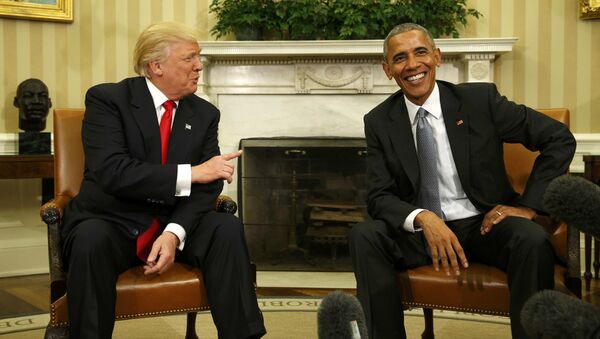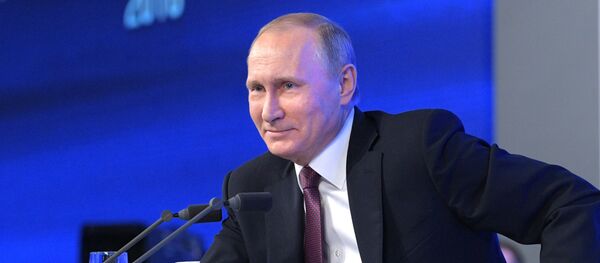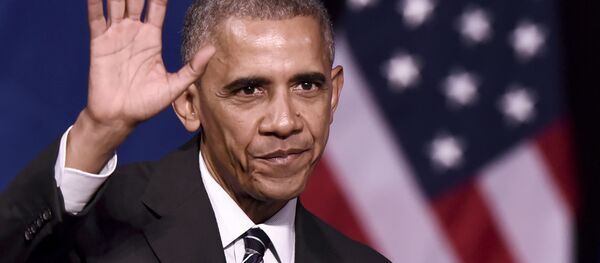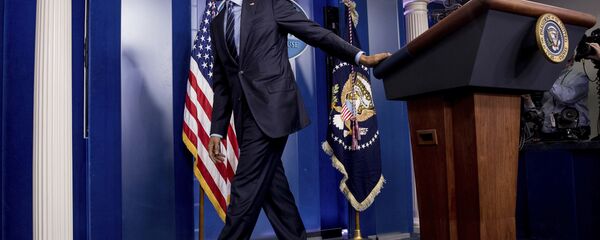Iranian political commentator and expert in international politics Ali Reza Rezakhah suggested that next United States President Donald Trump could overturn Obama's order but may face opposition from Congress.
"Donald Trump is likely to lift these sanctions. However, if Congress interferes and passes a bill on those sanctions the situation will get much worse. Such congressmen as Paul Ryan and John McCain are hardline towards Russia and wants new tough restrictions against Moscow. So, it is very important to wait and see how Congress will react," Rezakhah told Sputnik Persian.
"In three weeks, the US will have a new president. This is why these sanctions look like an attempt by [outgoing President Barack] Obama and his administration to create problems and restrictions for the next administration," he pointed out.
According to Rezakhah, the move may be aimed to "weaken" Donald Trump in two dimensions, including challenging his victory in the election and fueling tensions between him and Congress.
"Those measures can be regarded as the last challenge by Obama to the new administration which will radically change US foreign policy," Rezakhah said.
His assumption was echoed by Mojtaba Jelalzadeh, an expert in international politics at the Tehran-based Azad University.
According to Jelalzadeh, Obama’s actions are "betrayal" of his initial foreign policy course aimed at a "reset" in relations between Moscow and Washington.
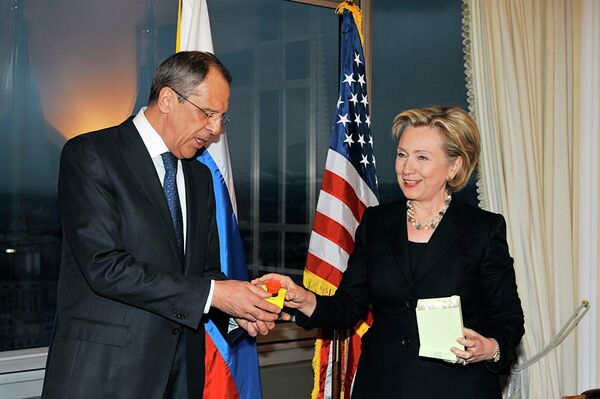
"US-Russia ties seriously changed during Obama’s second term as president. When he became president he initiated a policy aimed to reset ties between the US and Russia. However, this policy failed and Washington began to fuel hostility towards Moscow," he pointed out.
"Such ambitions by Washington as well as its striving for global leadership will be the turning point. The first results are already visible in the Middle East," he added.
"These sanctions can be viewed as the first practical step in the open political struggle against Russia during Vladimir Putin’s presidency. The Americans want to force Russia to retreat, especially in certain regions, first of all the Middle East, where Russia now plays the leading role," Jelalzadeh concluded.
A similar assumption was voiced by Martin Bana, a professor at the Buenos Aires University and a specialist in Russian history.
"This [the new sanctions] is an attempt to face off with Russia. If you take a look at the global context, Russia is seeking to expand its political role, and the US wants to restrict its expansion. This is a kind of symbolic struggle for influence," Bana told Sputnik Mundo.
He added that this move also reflects Washington’s concerns over alleged "Russian interference" with the electoral process and also the fact that now Russia is playing the leading role in the global fight against terrorism, a role traditionally played by the US.
Bana also expressed hope that incoming US President Donald Trump will radically change Washington’s approach to Moscow.
"Obama is a lame duck president. He has nothing to lose. His views are opposite to those of Donald Trump and his team. Trump is likely to have closer contacts with Putin," he concluded.
